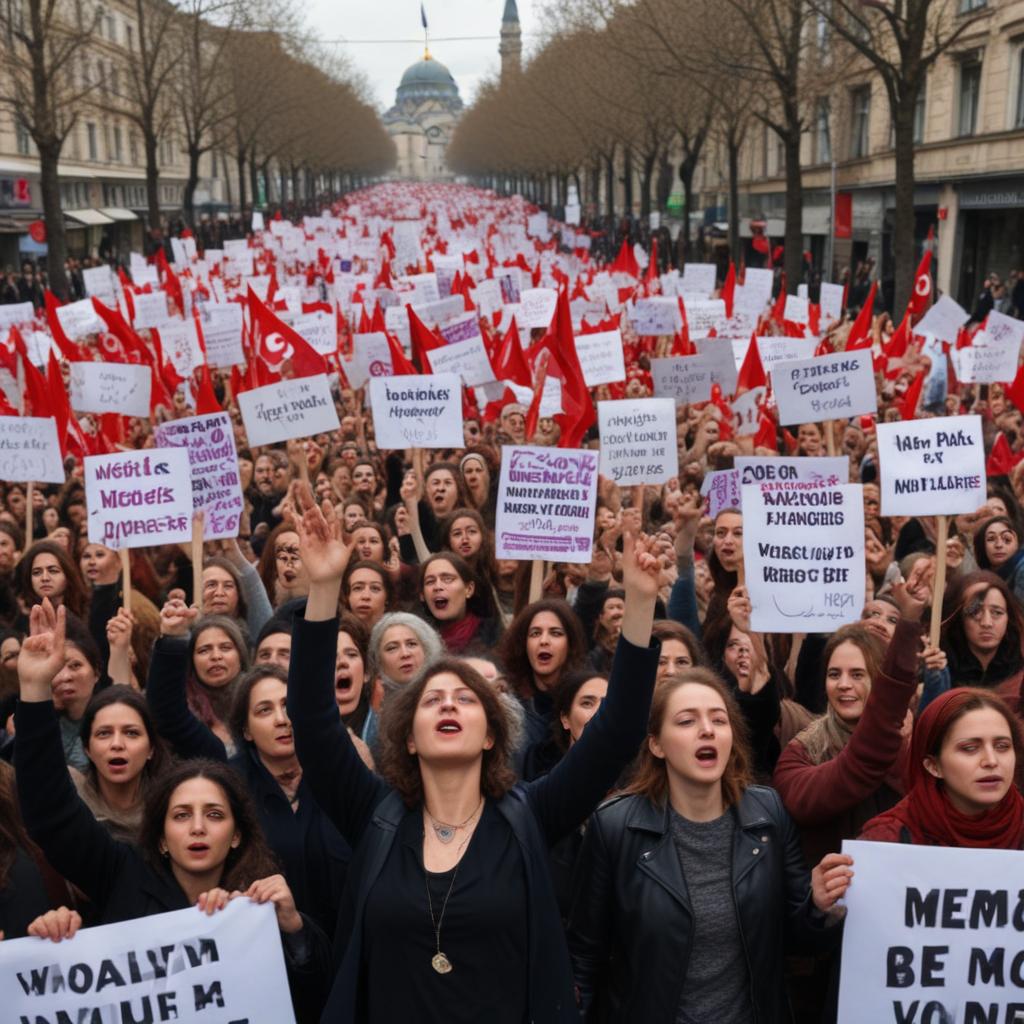Women worldwide rallied on International Women's Day, demanding an end to gender-based violence and inequality, with protests ranging from vibrant marches to symbolic acts of defiance.
International Women's Day saw women across Europe, Africa, South America, and beyond take to the streets to demand an end to inequality and gender-based violence. In Istanbul, a large rally featured speeches, dance, and song, despite a heavy police presence. Protesters challenged the Turkish government's declaration of 2025 as the "Year of the Family," arguing against the confinement of women's roles to marriage and motherhood. The government has faced criticism for restrictions on women's rights and insufficient action against violence, including its withdrawal from the Istanbul Convention. A Turkish rights group reported 394 women were killed by men in 2024. Across Europe, women protested violence, demanding better healthcare access, equal pay, and an end to discriminatory treatment. In Poland, activists opened an abortion pill center across from parliament, defying restrictive laws. From Athens to Madrid, Paris, and many other cities, women marched against being treated as second-class citizens. In North Macedonia, organizers highlighted the low rates of women's property ownership. In Nigeria, thousands gathered in Lagos, celebrating womanhood. Russia's celebrations had a more official tone. German President Frank-Walter Steinmeier warned against the rollback of progress made toward equality, citing examples of tech companies adopting new diversity programs under pressure. In South America, marches focused on femicides, with protests in Ecuador and Bolivia demanding justice for slain women and denouncing impunity.



